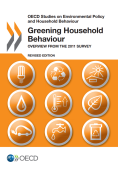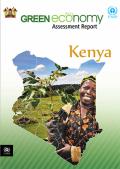Over the past decade, Asia and the Pacific has made significant progress in achieving the Millennium Development Goals. However, accelerating climate change is threatening to reverse these gains, and those who are already economically and socially vulnerable are likely to suffer soonest and most. To enable member countries cope with the inevitable impacts already locked into the climate system, as well as to transition them to low-carbon economies, ADB is working with urgency to put in place integrated solutions that will address both the causes and consequences of climate change in the region.
In 2009 to August 2011, ADB’s climate change-related interventions span a total of more than 110 projects, involving an investment of about $10 billion. During the same period, ADB has also provided more than $245 million in technical assistance to improve knowledge and capacities, support policy and institutional development, and ensure the feasibility of investments related to climate change.

Developing growth strategies that promote greener lifestyles requires a good understanding of what factors affect people’s behaviour towards the environment. Recent OECD work based on periodic surveys of more than 10, 000 households across a number of countries and areas represents a breakthrough by providing a common framework to collect unique empirical evidence for better policy design.
This publication presents responses from the most recent round of the OECD survey implemented in 2011 in 5 areas (energy, food, transport, waste and water) and 11 countries: Australia, Canada, Chile, France, Israel, Japan, Korea, the Netherlands, Spain, Sweden and Switzerland.
Analysis comparing the data across countries, policy conditions and households’ characteristics reveals which measures most effectively change behaviour. Each round of the survey also allows to track changes over time and to explore new emerging issues.
This report was produced by the Decoupling Working Group of the International Resource Panel. It explores technological possibilities and opportunities for both developing and developed countries to accelerate decoupling and reap the environmental and economic benefits of increased resource productivity. It also examines several policy options that have proved to be successful in helping different countries to improve resource productivity in various sectors of their economy, avoiding negative impacts on the environment.
It does not seem possible for a global economy based on the current unsustainable patterns of resource use to continue into the future. The economic consequences of these patterns are already apparent in three areas: increases in resource prices, increased price volatility and disruption of environmental systems. The environment impacts of resource use are also leading to potentially irreversible changes to the world’s ecosystems, often with direct effects on people and the economy – for example through damage to health, water shortages, loss of fish stocks or increased storm damage.

This report describes efforts by the ClimateWorks Foundation and the World Bank to quantify the multiple economic, social, and environmental benefits associated with policies and projects to reduce emissions in select sectors and regions.
The report has three objectives: 1) to develop a holistic, adaptable framework to capture and measure the multiple benefits of reducing emissions of several pollutants; 2) to demonstrate how local and national policymakers, members of the international development community, and others can use this framework to design and analyze policies and projects; and 3) to contribute a compelling rationale for effectively combining climate action with sustainable development and green growth worldwide.

Kenya has one of the most dynamic economies in Africa, yet it is facing a number of pressing economic, environmental and social challenges. In recent years, Kenya has adopted several green economy-related approaches and policies, which include implementing renewable energy feed-in tariffs in 2008, embedding sustainable natural resource utilization into its 2010 Constitution and mainstreaming green economy in its Second Medium Term Plan (2013-2017).
In this context, the Ministry of Environment, Water and Natural Resources, in partnership with UNEP, commissioned a study to assess the economic benefits and challenges of investing in priority economic sectors in support of Kenya’s transition to a green economy. The study examines investments under “business-as-usual” (BAU) compared to green economy scenarios in four key sectors that are critical for the country’s green growth, namely: agriculture, energy, manufacturing and transport.
